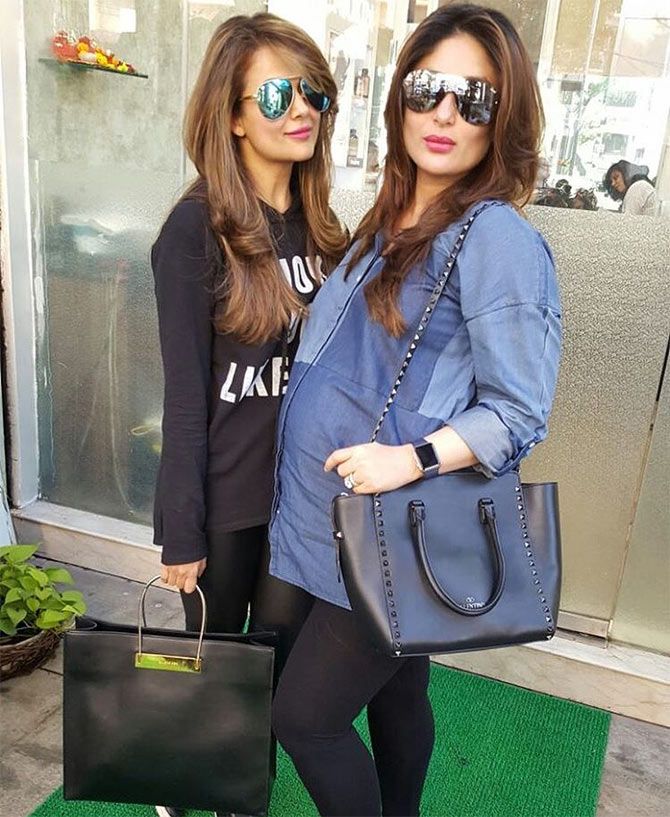 | « Back to article | Print this article |
Women's biological clock: Myth or reality?
Ritu Sethi has the answer.

IMAGE: Kareena Kapoor Khan, right, who had her son Taimur when she was 36 years old, and Amrita Arora. Photograph: Kind courtesy Amrita Arora/Twitter. Kindly note: Image posted only for representational purposes.
India is estimated to overtake China and become the youngest country by 2030.
In this era of increasing urbanisation and women focusing on careers, family planning has taken a backseat.
Just as pregnancy at an early age is considered risky, so is pregnancy at an advanced age (above 35 years) which can lead to complications for both the mother and the child.
The biological clock is actually a reality and it is essential that all women know it.
A woman is born with a certain number of eggs that will last her entire reproductive life.
As she grows older, so do the eggs. Older eggs have increased chances of malformation.
Thus the chances of delivering malformed babies increase with a woman's age.
If the risk at 25 years is 1:1500, it will increase to 1:400 at 35 years.
Chances of miscarriages also increase as age increases, because the hardened arteries carrying blood to the unborn child are unable to do so effectively.
The rate of losing a pregnancy in the initial stages also climbs -- from a 9 per cent miscarriage rate among 22-year-olds to approximately 30 per cent in women in their thirties.
There is an increased risk of stillbirth in pregnant people as they age.
Even if the lady were to get pregnant, there are increased chances of her having lifestyle-related diseases such as diabetes, blood pressure or thyroid problems which may be present beforehand or develop due to stress caused by the pregnancy.
Lifestyle-related hormonal problems, such as polycystic ovarian disease, have also taken centrestage and are creating more problems in older women wanting to start a family.
These days, women are delaying pregnancy and opting for fertility treatments because chances of natural conception decrease with age. But this process is cumbersome and complicated, compared to natural reproduction.
Another trend is for women to freeze their eggs. The eggs are frozen at a young age and can be thawed later. This prevents age from affecting the quality of the eggs.
But the flipside is that the treatment is costly and the patient can conceive only through in-vitro fertilization, which has low success rates.
At the end of the day, the right to give birth or postpone a pregnancy is entirely an individual's choice.
A woman's fertility begins to decline beginning in her thirties, with a more significant decline after the age of 35.
Each month, there's only a 20 percent chance of pregnancy for a woman in her thirties, according to the American Society for Reproductive Medicine.
Thus, for a healthy pregnancy, a woman should start thinking about her reproductive goals in her late twenties and plan a pregnancy in her early thirties.
